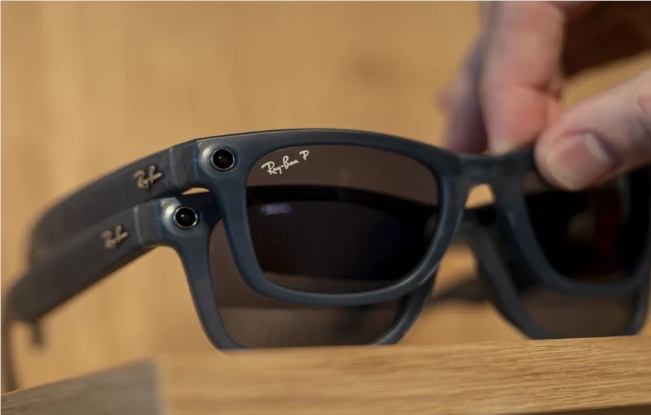Sources revealed that Baidu will release a brand new smart glasses at the Baidu World Conference in Shanghai next week. This glasses will integrate a camera, support photography and video recording, and use Baidu Wenxin big model to achieve voice interaction, and the price is expected to be lower than similar products of Meta. This move marks Baidu's latest attempt in the field of AI hardware and also reflects the fierce competition among domestic and foreign technology giants in the field of AI commercialization. Whether Baidu can stand out in the fiercely competitive market with its deep accumulation in the AI field and its mature ecosystem is worth paying attention to.
According to people familiar with the matter, Baidu will release a brand new smart glasses product at the Baidu World Conference held in Shanghai next week. This glasses will be equipped with a built-in camera, support shooting photos and videos, and provide voice interaction functions based on Baidu Wenxin's big model.
In the global wave of AI commercialization, 2024 has witnessed the birth of a number of AI hardware products. Although Humane's Ai Pin performed poorly, Microsoft's C o pilot+ PC series has gained market recognition. It is worth noting that the smart glasses jointly created by Meta and Ray-Ban manufacturer Yishilu Mingyue, as a relatively mature product, have made significant progress in both functions and market performance this year. Meta said that the product was in short supply, and Yishilu Mingyue listed it as one of the main driving forces for sales growth.

Image from yahoo
As a technology company that has been deeply involved in the AI field for more than ten years, Baidu's smart glasses will be seamlessly connected with ecological products such as Baidu Maps and Baidu Encyclopedia. It is reported that the price of the product is expected to be lower than the Meta's $299 and will be available as early as early as 2025.
Baidu's AI glasses were developed by its hardware department Xiaodu. Xiaodu Technology received capital injections from investors such as IDG Capital in 2020, with a valuation of US$2.9 billion. At present, Xiaodu's main product lines include smart speakers and wireless headphones, which can all be connected to Baidu's content ecosystem.
Although Baidu has a first-mover advantage in the ChatGPT trend, its market position is facing challenges. ByteDance's Doubao has recently surpassed Wen Xinyiyan and became the most popular AI chatbot in China. Baidu management also acknowledged that displaying AI-generated content in search business may have a negative impact on short-term advertising revenue.
In the domestic market, several emerging hardware manufacturers have launched AI glasses equipped with cameras and open audio, while some manufacturers focus on specific functions such as translation and navigation. At the same time, according to Bloomberg, Apple is also conducting internal research on existing related products on the market, and may enter this field.
Requests for comment to Baidu have not been responded yet.
Whether Baidu's smart glasses can succeed depends on whether they can balance their functions, price and user experience, and effectively deal with challenges from competitors at home and abroad. In the future, the competition in the AI smart glasses market will become more intense. Let's wait and see whether Baidu can occupy a place in it.